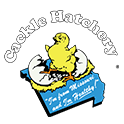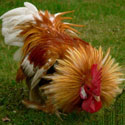
Mean chickens occasionally appear in nearly any breed, more commonly among roosters than among hens. The first thing to do is try to figure out what triggers an attack. Sometimes it’s something as simple as he doesn’t like your new chore boots, your favorite floppy pants, or the way you swing the feed bucket. Making […]
Continue Reading
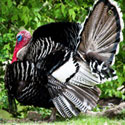
A picture-perfect Pilgrim-era turkey, the Narragansett was developed by early settlers as a cross between Norfolk Black turkeys brought from Europe and local wild turkeys. Having its origins in Rhode Island, the turkey was named after the state’s Narragansett Bay. It was once a common feature in farmyards, but eventually lost favor to more cost-effective […]
Continue Reading
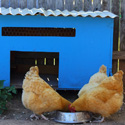
Debate rages over whether it’s better to feed and water chickens inside the coop or outdoors in the run. The right answer depends on a number of factors, including how big the coop is in relation to the flock size, whether or not the chickens are confined indoors overnight and for how long, how secure […]
Continue Reading
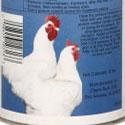
All insecticides are toxic to some extent, or they wouldn’t work. Permethrin is a synthetic version of pyrethrins — natural insecticides that are extracted from daisy-like flowers. Compared to natural pyrethrins, synthetic versions persist longer in the environment and therefore need to be applied less often. Permethrin comes in the form of a dust […]
Continue Reading
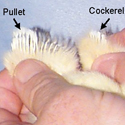
Feather sexing is the ability to determine the gender of a newly hatched chick based on the rate of growth of its wing feathers. The trait is sex linked and works only if the chick’s father is of a breed that grows feathers rapidly and its mother is of a breed that grows feathers slowly. […]
Continue Reading
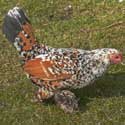
Chicken keepers have many different reasons for having a backyard flock of chickens. Here are 20 of the best reasons put forth by people with a passion for poultry: Chickens lay eggs. Keeping your own flock of hens ensures a ready supply of freshly-laid eggs right outside your back door. Chickens eat insects. […]
Continue Reading

Rhode Island White Hatching Eggs – 12 for $61.68 24 for $101.28 FREE SHIPPING
Seasonal/Shipped Mid February through June 5th.
Continue Reading
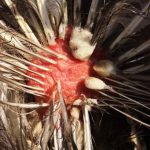
The most common ways chickens acquire lice are from wild birds and other chickens. Once a chicken is infested, lice spread by crawling from one bird to another. Contact with infested feathers, especially during a molt, also helps spread lice. Lousiness is usually worse in fall and winter. Suspect lice if your chickens are restless, […]
Continue Reading
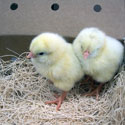
When those fuzzy little chicks, ducklings, or goslings arrive in the mail, the first thing you want to do is pick them up and cuddle them. Young children, especially, can’t resist snuggling those cute little fluff balls. The more time you spend with your baby poultry, the friendlier they will become. However, among the important […]
Continue Reading
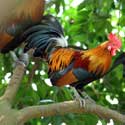
When chickens are allowed to free range, certain breeds fare far better than others, especially in terms of avoiding predators. Ideal characteristics for free ranging chickens include wariness, inconspicuous plumage, acute vision, and foraging ability. Predator Wariness Chicken breeds that are best able to evade predators are the wary, high strung, excitable, so-called […]
Continue Reading

